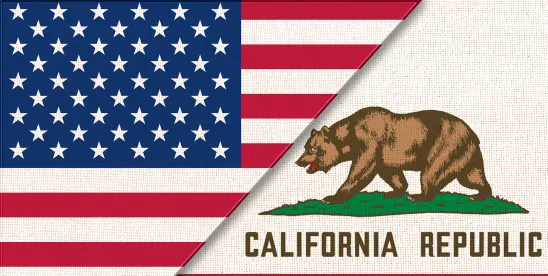Judge Wright (C.D. Cal.) has significantly narrowed the Chamber of Commerce's lawsuit challenging California's climate disclosure laws. (These disclosure laws mandate disclosure of Scope 1, Scope 2, and Scope 3 greenhouse gas emissions for companies with over $1 billion in revenue, and the disclosure of climate-related financial risks for companies with over $500 million in revenue.) The Chamber of Commerce had filed a lawsuit challenging these laws on a number of grounds, including that California's disclosure regime violated the supremacy clause and improperly applied extraterritorially--i.e., outside California. Both of these arguments were rejected by the federal district court.
Significantly, the Court rejected the Chamber of Commerce's argument that a “law [] ‘aimed at stigmatizing’ and ‘shaming’ companies to ‘pressure[] them to lower their emissions’”--in other words, “a disclosure regime intended to regulate emissions through third-party actions”--constituted a “de facto regulatory scheme subject to preemption.” Further, the Court also held that the law survived a challenge that it improperly burdened interstate commerce by regulating extraterritorial conduct by holding that the Chamber of Commerce “fail[ed] to plausibly allege a significant burden on interstate commerce.” In other words, even though this decision was limited in scope--for example, certain claims could be re-filed as they were dismissed without prejudice--the Court nonetheless rejected the legal theories underpinning common challenges to state-level climate disclosure laws. (Also, certain claims were dismissed due to technical legal issues--e.g., the challenge to the mandatory disclosure of greenhouse gas emissions was dismissed as not yet being ripe for adjudication.) This decision may encourage other states to implement mandatory climate disclosure regimes similar to that enacted by California.
However, the challenge to California's climate disclosure laws by the Chamber of Commerce remains unresolved. The State of California had not moved to dismiss the First Amendment challenge brought by the Chamber of Commerce--the court had previously rejected the Chamber of Commerce's facial challenge to the law's validity under the First Amendment--and so the Chamber of Commerce's lawsuit can continue as it endeavors to construct a record to sustain its challenge based upon its argument that the First Amendment bars the climate disclosure laws as a form of compelled speech.
A US Chamber of Commerce challenge to California’s emissions reporting law was narrowed after a district judge said it failed to state a sufficient claim against a disclosure provision. The state’s climate-related financial risk disclosure requirement isn’t a regulatory scheme subject to preemption, the US District Court for the Central District of California said when it dismissed that claim with prejudice. That requirement, also known as SB 261, doesn’t discriminate against or sufficiently burden interstate commerce to support an extraterritoriality claim either, Judge Otis D. Wright II said, but he added the chamber could refile that claim. Claims against SB 253, California’s greenhouse emissions disclosure requirement, weren’t ripe, the court said, dismissing Supremacy Clause and extraterritoriality claims against it without prejudice. The state’s dismissal motion declined to address the chamber’s First Amendment argument.




 />i
/>i

